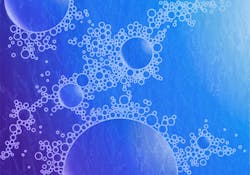The Water Environment & Reuse Foundation (WE&RF) awarded Jeremy S. Guest, Ph.D., assistant professor in the Department of Civil & Environmental Engineering at University of Illinois at Urbana-Champaign, with the 2016 Paul L. Busch Award.
Each year, WE&RF recognizes an outstanding individual or team of individuals whose ongoing efforts contribute significantly to water quality research and its practical application in the water environment with the Paul L. Busch Award. The award carries a $100,000 grant from the WE&RF Endowment for Innovation in Applied Water Quality Research to support and promote work that will bring new benefits to the water quality community—utilities, industries, environmental firms—and the water-using public they serve.
With the prize, Guest seeks to link fundamental research on microalgal metabolism and biochemistry to industry applications at Water Resource Recovery Facilities (WRRFs) in need of 21st century solutions to energy and nutrient management challenges.
Guest’s proposed research seeks to develop technologies that leverage native phototrophic eukaryotes (microalgae) for biological nutrient recovery from wastewater. Because effluent nutrient limits for WRRFs are becoming increasingly strict, billions of dollars are being invested as utilities upgrade to the limits of technology for nutrient removal. The processes are chemical and energy intensive. To transition environmental and economic performance of WRRFs to more sustainable trajectories, there is a critical need for technologies that align objectives for water quality with revenue generation through resource recovery and the production of bioproducts, thus creating economic incentives for enhanced treatment.
A critical challenge to the advancement of intensive algal treatment systems is a lack of understanding of how to design and operate systems that reliably—over daily and seasonal cycles—achieve effluent quality requirements and biomass production targets for a given locality. The specific objectives of Guest’s research are:
- Establish solids residence time (the amount of time the microalgae are allowed to grow in the reactor) as a key design parameter to drive selective pressures that reliably achieve 24-hour recovery of nutrients at targeted nitrogen:phosphorus ratios.
- Establish a phototrophic process model (PPM), enabling the design and optimization of bioprocesses that achieve targeted nitrogen and phosphorus recovery and biochemical compositions attractive for onsite energy production or sale as bioproducts.
Award Selection Committee members were impressed with Dr. Guest’s inclination to return to the foundations of algae research to better understand the engineering of the science driving current innovations in treatment.
“Ultimately, microalgae have the potential to transform nutrient management processes from the paradigm of energy-demanding pollutant removal to energy-positive nutrient recovery, while simultaneously advancing the limit of technology for effluent nutrient quality,” said Guest.
Source: Water Environment & Reuse Foundation


